Portfolio of impact startups supported by SBE
Every year Social Businesss Earth (SBE) selects high potential startups that generate significant positive social or environmental impact in the world, tackling some of the most pressing challenges in modern society. The selected impact startups have the unique opportunity to pitch at the Social Business Conference (SBC) and enter the SBE network. Subsequently, SBE supports them offering pro bono consulting and mentoring, connecting them to potential investors and providing them free access to workspaces in our Social Business Innovation Lab in Lugano (SBILAB), managed by our partner Area 302. In May 2024 SBILAB launched the Sapiens Natura Prize at the SBC 2024 which is awarded to three startups annually. The impact startups are selected according to criteria based on social impact, environmental impact, business model and feasibility, innovation and creativity, team, scalability, SDGs and financial sustainability. Impact investors who are interested in receiving the teaser of the startups can contact us at info@socialbusinessearth.org.
SOCIAL BUSINESS CONFERENCE 2025

Synature – 1st Place Winner – Sapiens Natura Prize 2025 – Innovation
Problem: Biodiversity loss is accelerating globally, yet traditional species monitoring methods—such as manual surveys, camera traps, or eDNA sampling—are costly, static, and lack real-time insights. This hampers conservation efforts and sustainable land-use planning.
Solution: Synature has developed a plug-and-play biodiversity monitoring system using smart bioacoustic microphones with up to 90 days of battery life (solar options available). These devices continuously record ecosystem soundscapes. Advanced AI models analyze species calls in real time, generating biodiversity indices displayed through a digital dashboard. The system enables scalable, non-invasive monitoring for national parks, agricultural areas, infrastructure projects, and ESG reporting.
In 2025, Synature was awarded the Sapiens Natura Prize for redefining how humans connect to the natural world. Their innovation fosters systemic awareness of life’s foundations—demonstrating that biodiversity and ecosystem integrity are not optional, but essential for a sustainable future.
Place and Year of Establishment: Lausanne, Switzerland, 2024
Sector: Biodiversity Monitoring / Environmental Tech Services / AI‑powered Conservation
Visit the Synature website to learn more

Arrhenius – 2nd Place Winner – Sapiens Natura Prize 2025 – Environmental Impact
Problem: Climate change requires more than emission reduction—the removal of atmospheric CO₂ is essential. To meet the Paris Agreement and Swiss net-zero targets by 2050, CO₂ emissions must not only be drastically reduced — unavoidable residual emissions must also be actively removed.
Solution: Arrhenius turns CO₂ into potential by developing next-generation photobioreactors that cultivate fast-growing microalgae with sunlight— nature’s fastest and most efficient CO₂ converters. As a cleantech startup, Arrhenius AG pursues a two-step strategy: first, generating short-term revenue through Spirulina production (as a food supplement) in Switzerland using its breakthrough technology; then, scaling durable Carbon Dioxide Removal (CDR) operations in Southern Europe by 2030. Their process enables measurable, verifiable CO₂ removal, certified via MRV protocols and traded as CO₂ removal credits (CORCs). With a proven system, strong positioning in an underserved market, and a diverse, impact-driven team, Arrhenius AG is building a circular and resilient future.
Arrhenius was awarded 2nd place in the Sapiens Natura Prize 2025 in recognition of their innovative approach to carbon dioxide removal and the environmental impact of their spirulina-based photobioreactor systems.
Place and Year of Establishment: Horw, Switzerland, 2023
Sector: Carbon Dioxide Removal / Bio‑based Climate Technology / Sustainable Agriculture
Visit the Arrhenius website to learn more

CDC_Studio – 3rd Place Winner – Sapiens Natura Prize 2025 – Environmental Impact
Problem: Currently, less than 1% of textile waste is recycled, while the fashion and leather industries generate vast amounts of mixed waste, yet lack scalable and cost‑effective recycling technologies.
Solution: CDC Studio has developed patented textile recycling technologies that process mixed textile and leather waste into recyclable ecological raw materials for reuse in fashion, construction, automotive, and design sectors.
MIKTÒS is a patented technology that turns non-recyclable mixed textile waste into a high-performance plastic material. Its uniqueness lies in the proprietary formulation and processing method, which enables the conversion of heterogeneous fibre blends—normally destined for landfill or incineration—into a recyclable polymer, without fibre separation or the use of chemical solvents.
CDC Studio was awarded 3rd place in the Sapiens Natura Prize 2025 in recognition of their pioneering work in reducing environmental waste by turning discarded textiles into high-value, recyclable materials
Place and Year of Establishment: Pisa, Italy, 2020
Sector: Circular Textile Recycling / Fashion-tech / Sustainable Materials
Visit the CDC_Studio website to learn more
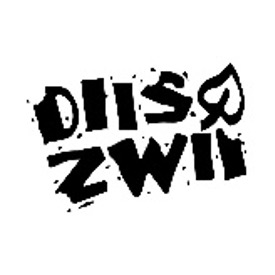
Diiszwii – Winner of the Startup 5 Consulting Package
Problem: Many snacking products are made with industrial sugar, artificial additives, and lack transparency—offering limited nutritional value and questionable sourcing.
Solution: DiisZwii offers a radically simple yet powerful alternative to conventional sweets: handmade, plant-based snacks crafted from just a few real ingredients—primarily dates and nuts—blended with creativity, craftsmanship, and care. Free from refined sugar, sweeteners, and preservatives, their recipes rely solely on the natural sweetness of fruits. Each bar is minimally processed, nutrient-dense, and allergen-friendly, meeting the growing demand for functional, transparent snacking. Produced in Switzerland with sustainable FSC-certified and recycled packaging, DiisZwii merges traditional artisanal methods with modern nutritional values—delivering indulgent treats that nourish without compromise.
Place and Year of Establishment: Schlieren, Switzerland, 2020
Sector: Plant‑based Food / Sustainable Snack Manufacturing
Visit the Diiszwii website to learn more
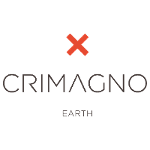
Crimagno – Winner of a Complimentary Workstation for 1 year at SBI-LAB
Problem: Standard footwear contributes significantly to environmental harm—leather and synthetic materials cause high carbon footprints, poor recyclability, and often neglect ergonomic and inclusive design.
Solution: Crimagno produces gender-neutral hybrid shoes combining luxury aesthetics, ergonomic comfort (“bionic”), and sustainable materials: divided natural rubber soles for flexibility, coconut-fiber insoles, natural-latex midsoles, biopolymer uppers from food industry by-products, hemp-based linings, full life-cycle recyclability, and CO₂ offset via tree planting; shoes are dismantled post-use with components re‑used (e.g. soles for athletic tracks, uppers for insulation panels). They are a certified B Corp since March 2025.
Place and Year of Establishment: Castel San Pietro, Switzerland, 2020
Sector: Sustainable Footwear / Ethical Fashion / Eco‑Design
Visit the Crimagno website to learn more
SOCIAL BUSINESS CONFERENCE 2024

Niatsu – 1st Place Winner – Sapiens Natura Prize 2024 – Innovation
Problem
The food industry faces a critical lack of transparency in measuring and reporting CO2 emissions. This problem is compounded by high costs, time-consuming processes, and reliance on manual calculations, which hinder accurate tracking and evaluation of improvements. As regulatory pressures increase and consumer demand for sustainability grows, companies struggle to meet these expectations without efficient tools.
Solution
Niatsu is dedicated to advancing sustainability in the food industry offering companies Automated Carbon Accounting services. The startup helps food producers quickly get an overview of their carbon impact through the use of an AI software, supporting them to take their first steps in their path to sustainability. Through data collection, the software provides a breakdown of carbon emissions from production and transportation to the point of sale, making it easier to identify areas for improvement and reduce supply chain impacts.
Niatsu provides automated, accurate, and real-time carbon accounting, enabling businesses to reduce their environmental impact and promote sustainable practices.
Place and Year of Establishment: Zurich, Switzerland, 2024
Sector: Sustainable Agrifood, Tech, AI
Visit the Niatsu website to learn more

ProSeed – 2nd Place Winner – Sapiens Natura Prize 2024 – Environmental Impact
Problem
Beverage processors in Europe generate over 18 million tons of wet by-products every year from beer, plant-based milk, and juice, which spoil in less than four hours. This rapid spoilage contributes significantly to food waste and CO2 emissions, presenting a major environmental challenge. Additionally, there is an urgent need to reduce animal consumption and replace it with sustainable plant-based proteins.
Solution
ProSeed combines technology and a circular approach to transform by-products from breweries into high-quality food for people, benefiting both the environment and society. ProSeed uses an advanced stabilization technology to convert barley flakes, which are by-products from the food industry, processing them into high-quality and nutrient rich products, like flour. Barley flakes serve as the basis for specialized flours and protein concentrates that food manufacturers need. With this new technology, ProSeed seeks to limit the millions of tons of macronutrients such as protein and fiber that are lost each year during industrial food processing.
Place and Year of Establishment: Sion, Switzerland, 2023
Sector: Circular economy, Sustainable AgriFood, Recycling and Upcycling, Deep Tech
Visit the ProSeed website to learn more
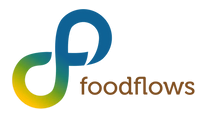
Foodflows – 3rd Place Winner – Sapiens Natura Prize 2024 – Social Impact
Problem
Millions of producers are struggling to make ends meet. Our environment has crossed several planetary boundaries, and consumers are disconnected from the origin of imported foods. These are all symptoms of a lack of accountability in very fragmented food value chains.
Enacting change in this system is complex and time-consuming
Solution
Foodflows aims to rebuild the agribusiness value chain between Brazil and Europe. Their mission is to change the way produce is consumed by offering the opportunity to buy from a select and diverse group of farmers. They are committed to building a regenerative food system with the objective to revolutionize the food industry by connecting consumers directly with talented farmers in Brazil, ensuring taste, freshness, and sustainability.
Place and Year of Establishment: Zurich, Switzerland, 2022
Sector: Sustainable Agrifood, Sustainable Farming
Visit the Foodflows website to learn more

EOS Social Responsibility Solutions
Problem
There are 27.6 million people in the world in forced labor. While business profits have increased over the past decades, so has the human cost. Over 152 million children are subjected to child labor, and there are over 340 million work-accidents leading to deaths and permanent injuries.
The three main challenges are:
- Companies often do not recognize the added value of CSR and fail to integrate it into their business strategies.
- Companies frequently misunderstand human rights and their place within the CSR framework. Businesses often see human rights as a legal or compliance issue rather than a fundamental part of their ethical responsibility.
- The general public lacks awareness of human rights and CSR, which exacerbates the first two challenges. Without public awareness and demand for ethical business practices, there is less pressure on companies to change.
Solution
EOS Social Responsibility Solutions (EOS) specializes in Corporate Social Responsibility (CSR), Sustainability, and Human Rights consulting. They help businesses integrate and monitor CSR strategies in line with national, European, and international standards. Their services include assessing, planning, executing, and evaluating CSR/Sustainability initiatives to achieve measurable annual goals. Additionally, EOS has created RAISE (Raise Awareness on International Standards in Education), an educational program aimed at bridging the CSR knowledge gap in middle schools, high schools, and universities.
Place and Year of Establishment: Lugano, Switzerland, 2020
Sector: Sustainability Consulting, CSR, Human Rights
Visti the EOS website to learn more
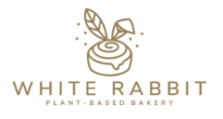
White Rabbit Bakery
Problem
Animal food consumption is becoming more and more unsustainable and should be reduced. It affects animal welfare, human health and the environment, highly contributing to climate change. Plant-based food mainly focuses on producing cheese and meat substitutes, mainly targeting vegan consumers and often being processed and low quality. Tasty plant-based bakery products are scarce on the market.
Solution
White Rabbit Bakery is Switzerland’s first plant-based artisanal bakery specializing in Scandinavian products, produced in Zürich and then sold to customers and resellers all around Switzerland. By partnering with local companies, they ensure they have the freshest possible products, and pay attention to the ethical integrity of their supply chain. Their products are sustainable and good for costumers and the Earth. They are 100% plant-based, they use local and sustainable value chain with 95% organic ingredients, they go beyond the vegan trend, they are careful to reduce waste and they upcycle products and give them to people in need whenever they have any left.
Place and Year of Establishment: Zurich, Switzerland, 2021
Sector: Sustainable Agrifood, Food Services, Catering, Food Production
Visit the White Rabbit Bakery website to learn more
SOCIAL BUSINESS CONFERENCE 2023

Openversum
Problem
Openversum tackles the issue of access to safe drinking water which affects 2 billion people in the world. The lack of access to safe drinking water leads to missed school or work days, perpetuates poverty, and contributes to economic and societal inequality. Drinking contaminated water increases the risk of bacterial diseases and health issues, especially for children – of which 300’000 die every year due to lack of medical assistance. The lack of safe drinking water disproportionately affects women and girls, who often bear the burden of water management at home, limiting their educational and economic opportunities.
Solution
Openversum makes water purification nanotechnology available to everyone in emerging markets through a microfranchising distribution model, creating jobs at local level. They provide a business blueprint to water entrepreneurs and enable them to escape poverty by building and operating cutting-edge drinking water filtration technology that is locally manufactured. They support their entrepreneurs through a network of regional managers and a digital platform automatizing all microfranchising processes.
Place and Year of Establishment: Zurich, Switzerland, 2022
Sector: Water, Deep tech
Visit the Openversum website to learn more

Aroundrs
Problem
Single-use plastic packaging is growing, with an estimated nearly 200 million tones in our oceans alone. A lot of great science went into biodegradable materials, but these are usually expensive and almost never recycled or composted due to the lack of adequate collection and recycling infrastructure. There are also traditional deposit-based re-use systems, but these don’t seem to scale as they cannot cope with the complexity of the task.
Solution
Aroundrs is a tech platform for the reuse economy, eliminating single-use packaging waste in a way that is innovative, affordable, and accessible to all.
They provide a digital and deposit-free reusable system for food packaging that offers every restaurant, canteen and delivery service an affordable and sustainable alternative to disposable and waste.
Place and Year of Establishment: Florence, Italy, 2021
Sector: Food packaging
Visit the Aroundrs website to learn more

Circular Lugano
Problem
Reducing natural resources waste and pollution caused by the production of common items.
Solution
Circular Lugano’s mission is to promote circular economy. The start-up offers a viable alternative to buying items for occasional use that would only be used once or twice by renting various items through its website and the shop in Lugano. Since inception they have contributed to saving 300,000 kg of CO2. Circular Lugano helps save up to 90% of natural resources and pollution.
Place and Year of Establishment: Lugano, Switzerland, 2022
Sector: Recycle and Reuse
Visit the Circular Lugano website to learn more
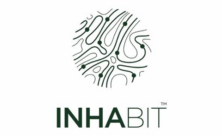
INHabit
Problem
Agriculture is the largest global source of ecosystem degradation and biodiversity loss, the largest water user and a key driver of climate change. 38% of global cropland is degraded because of unsustainable land usage. Young farmers lack access to land because of the dramatic increase in farmland prices worldwide; they also lack resources and know-how to successfully develop regenerative projects and communities and a fair access to markets that can value the returns that their products generate for society and Earth as a whole.
Solution
This start-up began its journey in Colombia in 2020 with a vision of enabling groups of people to participate in the economy of their bioregion and the regenerative management of the places they inhabit. Inhabit has developed tools for people to design, transform, and sustain the places they inhabit as well as to facilitate healthy connections and exchanges within and between farms. Inhabit is the first digital token backed by land, that provides a fractional ownership of specific land to investors.
Inhabit token provides a secure, intrinsic storage of value (based on land and natural capital), asset liquidity and a long-term and sustainable profit.
Place and Year of Establishment: Cali, Colombia, 2023
Sector: Regenarative Agriculture, Sustainable Agrifood
Visit the Inhabit website to learn more

Revozona
Problem
According to the European Parliament the textile industry is the 2nd most pollutive industry worldwide. Textile production is estimated to be responsible for 20% of global water pollution from dyeing and finishing products, while the same industry is responsible for 10% of global carbon emissions.
Solution
Revozona provides an innovative and disruptive solution to replace vast amounts of chemicals by applying ozone gas, which acts as a strong antioxidant. This technology enables optimal processing results of the textiles, while saving up to 90% of water and CO2 emission, 45% of steam, electricity and production costs are saved.
Place and Year of Establishment: Lugano, Switzerland, 2022
Sector: Fashion, Deep Tech
Visit the Revozona website to learn more